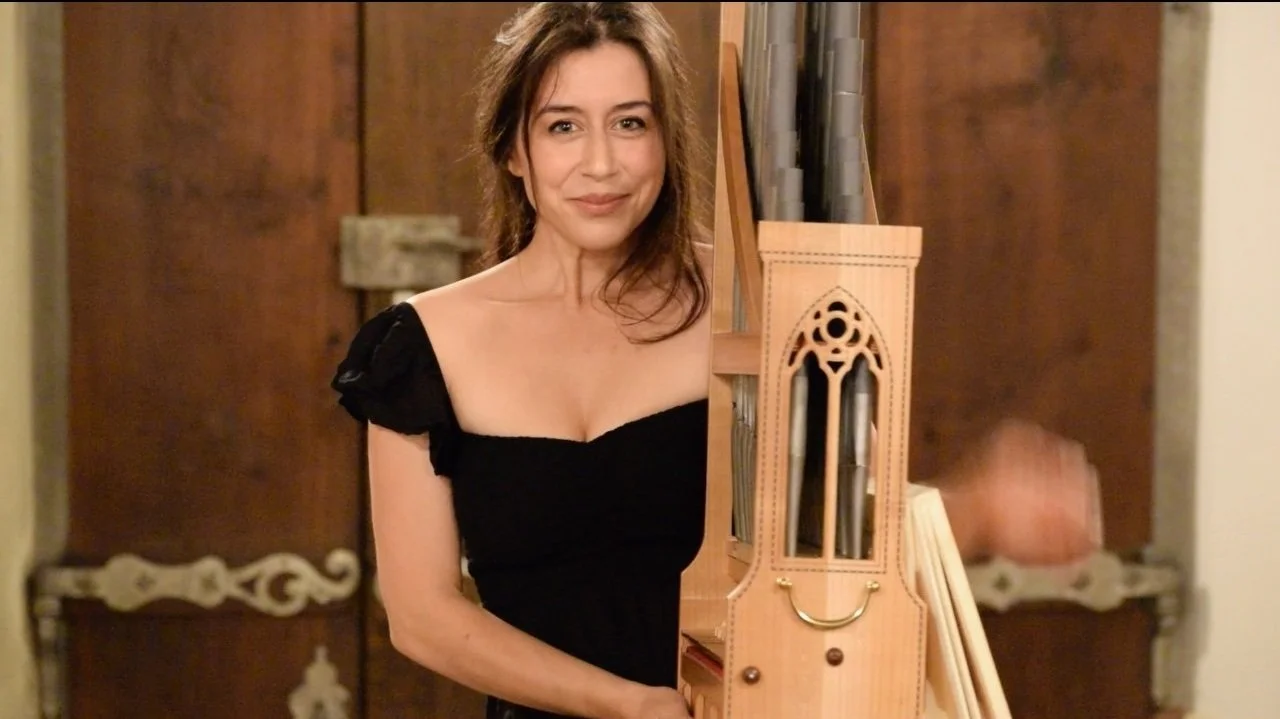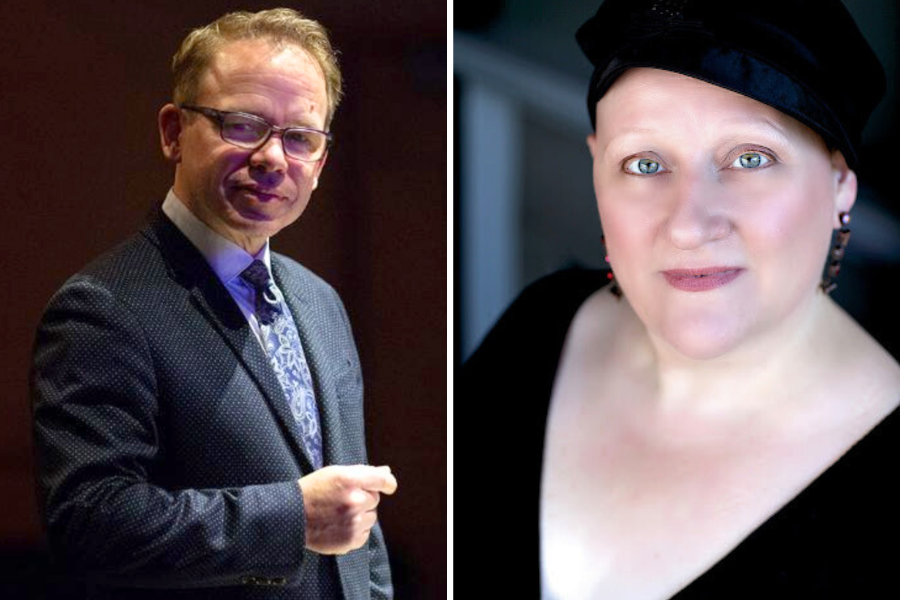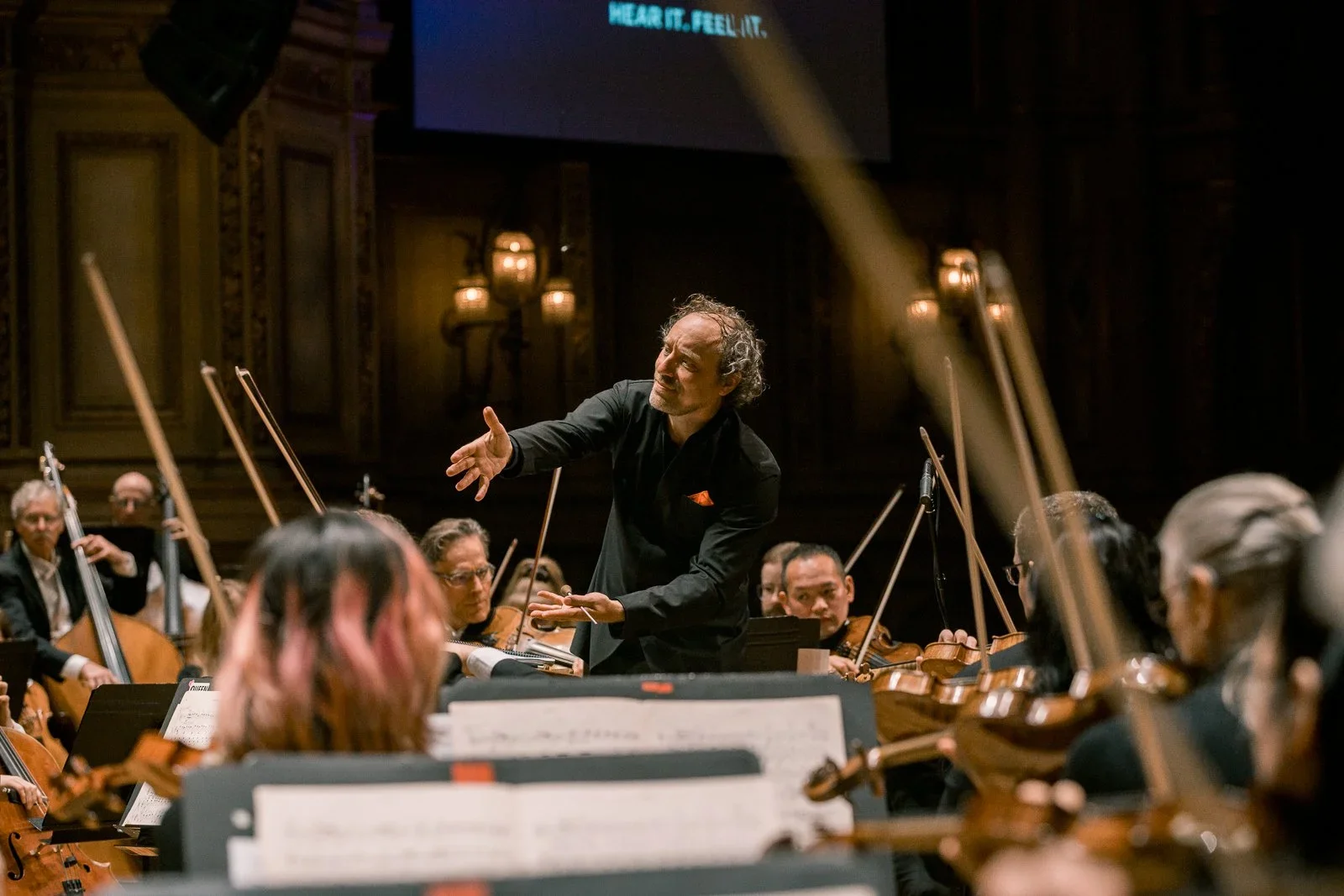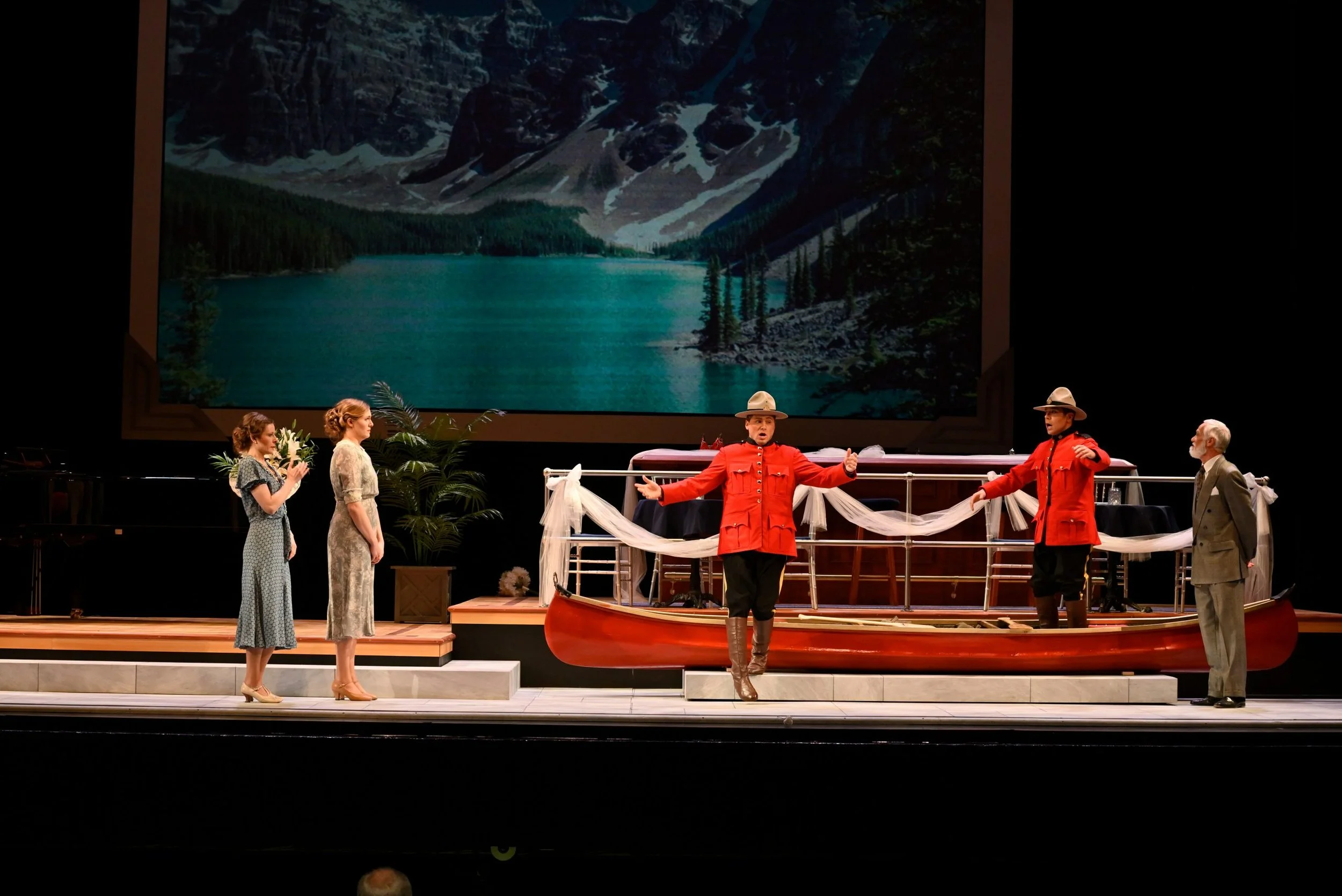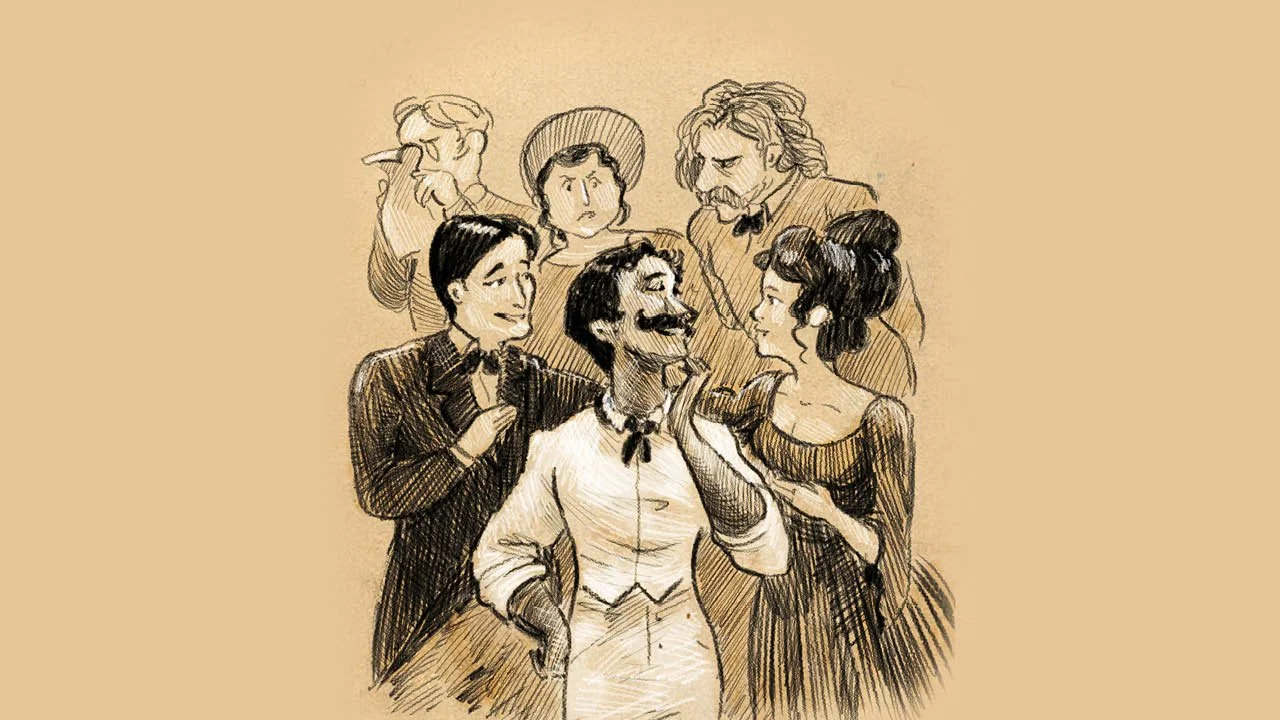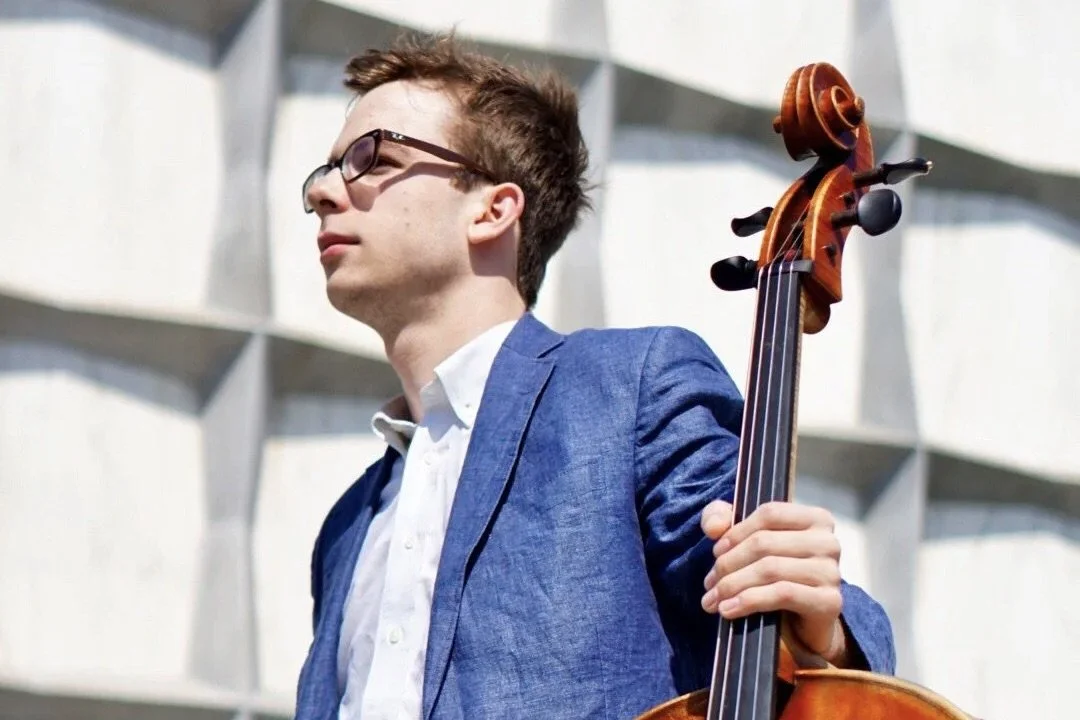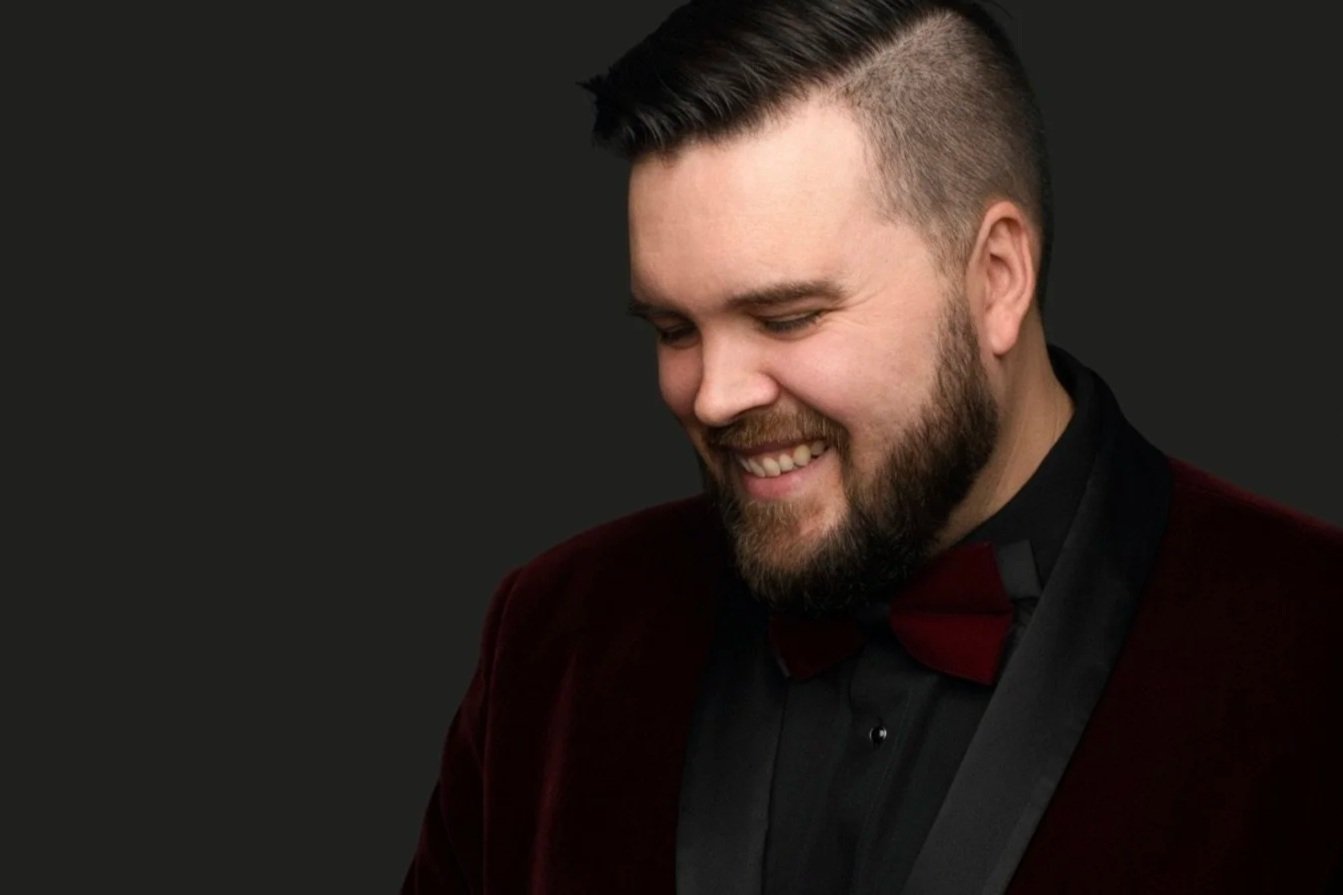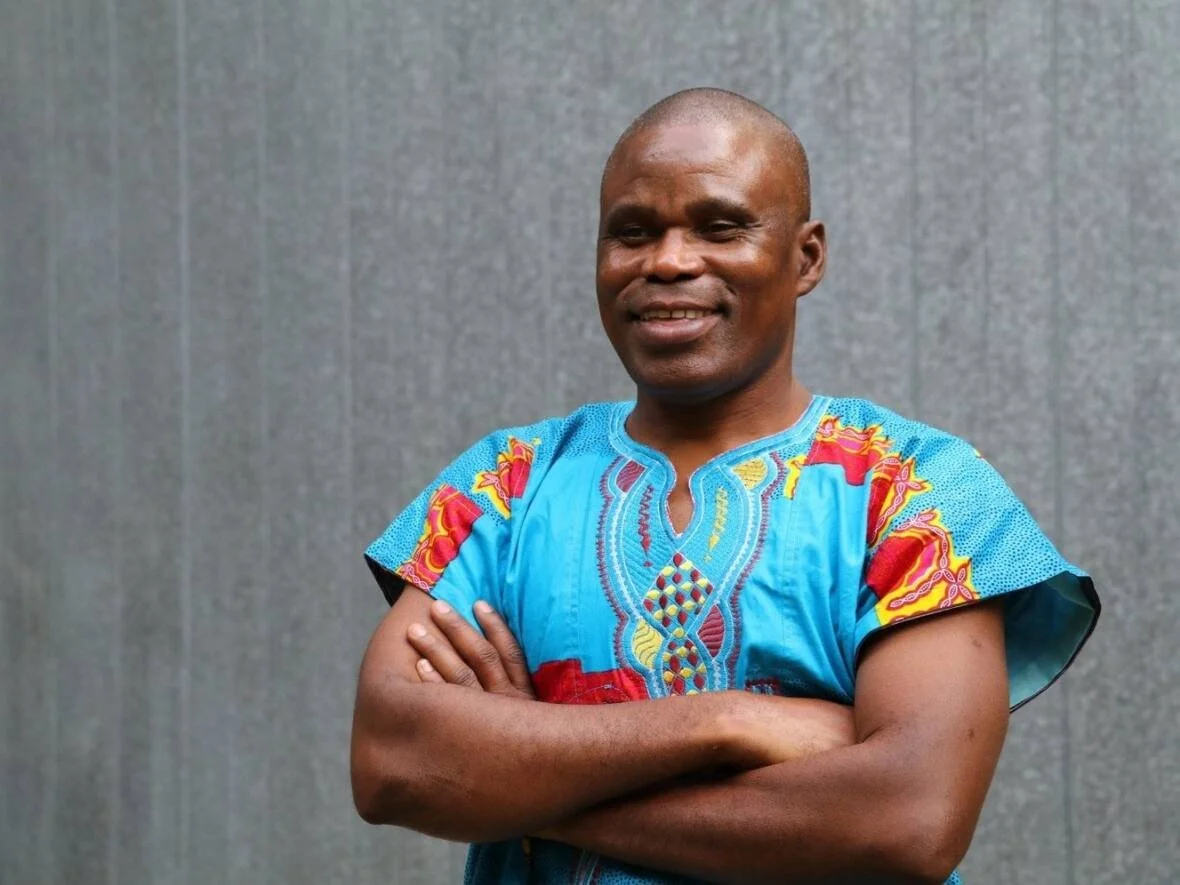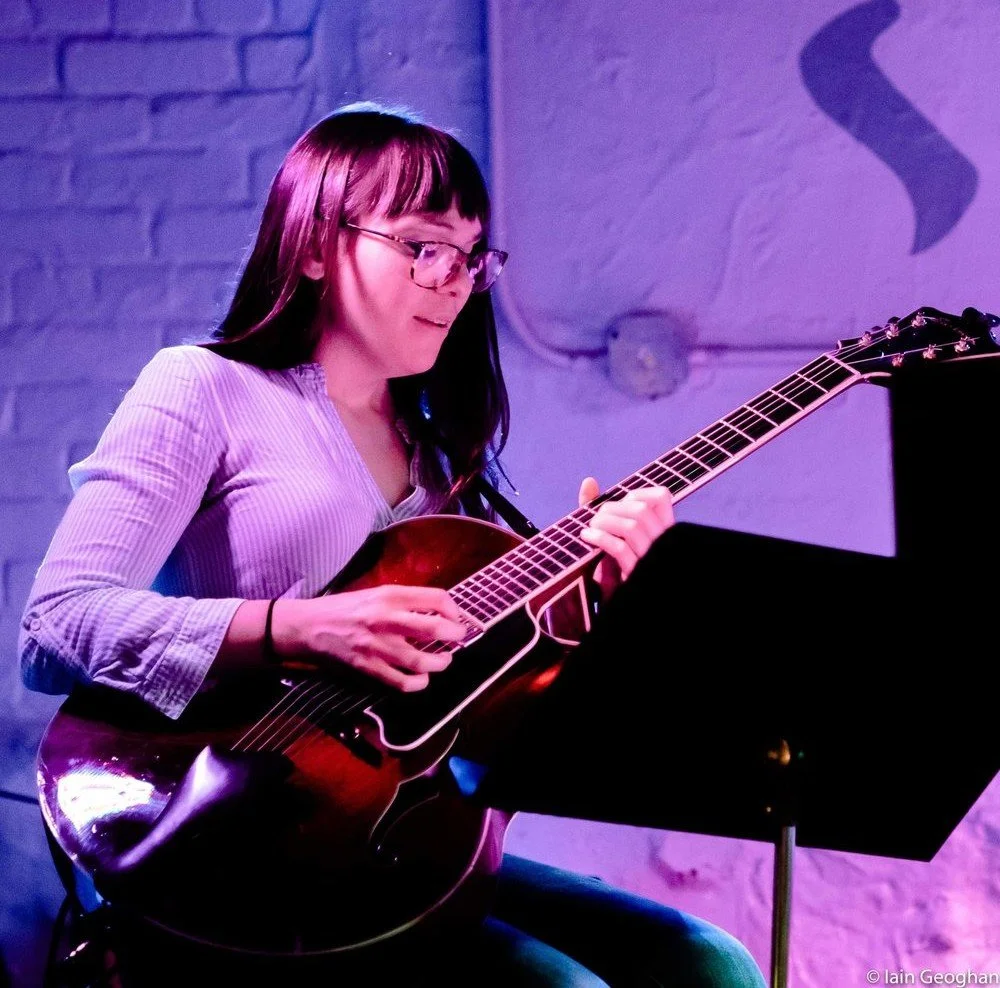Early Music Vancouver Summer Festival artist-in-residence Catalina Vicens fuels the creative resurgence of Middle Ages' organ
The Chilean-born Servir Antico instrumentalist appears in Our City of Ladies and a solo recital, and oversees music of The Queen of Carthage
Catalina Vicens’s portative organ is just one of the early-music instruments the Chilean-born, Italy-based artist can play.
Early Music Vancouver and re:Naissance Opera present The Queen of Carthage at the SFU Goldcorp Centre for the Arts on July 27. Catalina Vicens presents Songs Without Words: Women in Music in the Middle Ages and Renaissance at Pyatt Hall on July 30. Servir Antico performs Our City of Ladies at Christ Church Cathedral on August 1
THERE IS A CURE FOR jaded ears, and it involves something very, very old being made to sound new all over again. And better still is that all it requires is for you to step away from this page and do an Internet search for these four words: “Catalina Vicens portative organ”. I guarantee that you will be surprised—and likely delighted.
The device that the Chile-born, Italy-based Vicens is cradling in any of several different videos looks like a cross between an accordion, a collection of tubular wind chimes, and an architectural maquette of a Romanesque cathedral. It is, however, the ancestor of the more familiar pipe organ, and was popular in the Middle Ages, before it was supplanted by larger and more complex keyboards. Antique though it is, it’s now having a moment—largely due to Vicens’s enthusiastic championing of its small but evocative sound.
The portative organ is not this musician’s only instrument, however. Vicens is adept on several other historical keyboards, including the virginal, organetto, and harpsichord, and is currently curator of Bologna’s Tagliavini Collection of historical instruments. She’s also the founder and artistic director of the early music ensemble Servir Antico, and she’s currently in our city as the guest of Early Music Vancouver Summer Festival. As the event’s artist in residence, she’ve overseeing the music for an ambitious reimagining of the life of Dido, the Carthaginian queen immortalized by the Roman poet and historian Virgil and, later, in Dido and Aeneas, by the English Baroque composer Henry Purcell. She’ll also lead Servir Antico in performance, and perform solo on a small assortment of her favourite instruments, with a focus on women and music in the 14th, 15th, and 16th centuries.
What links all of these events, other than Vicens’s assured presence, is her passion for putting early music into a contemporary context—not by remaking it to reflect 21st-century mores, but by finding the roots of the world as we know it in the civilizations of the past.
“I’m fascinated by texts from the past, words from the past,” she explains in a Zoom interview, speaking in fluent but heavily accented English. “And I see ‘How do I connect with them?’ This is usually where my work as an early musician is, but where does this come from? Music has never been an isolated thing. It’s part of a society; it comes from a mind-set. So my idea is to go a little bit further with that and say ‘Wait! There’s so much humanity that I see here, and there are so many elements that resonate with the struggles that we live with today—struggles as human beings that are fundamental to our sense of identity and to all of our emotions.”
Vicens admits to a particular fondness for the humanist thinkers of the Renaissance, who were engaged in reviving the lost or suppressed knowledge of the Greeks and Romans while at the same time laying the foundations for modern science, economic theory, and democratic principles. She shies away from saying that her work has become more urgent now that those principles are under attack from demagogues, anti-science fundamentalists, and neo-feudalists, but allows that growing up under a military dictatorship in Chile has at least subconsciously shaped her sympathies.
“I was quite protected, so I didn’t see clearly what that meant,” she notes. “I knew there was oppression. I knew that we were silent. I knew that the military was outside of our door, but I didn’t know anything else—although I did feel the fear. What does a child do when when they grow up with that? At the same there were militants of my parents’ generation that put their souls to serve and to help our community. Not help; to serve, actually. I think that is perhaps a better word—to be engaged, to empathize, and try to find solutions for injustice. This was a driving force in the generation that proceeded me, so of course all of these elements come into play when I think on the privileged societies that I’ve lived in, which are Europe and North America.”
Service, she stresses, is a key component of her artistic work. With Servir Antico in particular, but also in her other undertakings, she’s serving the present by exploring the past.
“I cannot read a book from the past and not reflect on my status as a human being today,” she explains. “So on one hand I am always being critical of the tradition that the music, the texts, the literature, the philosophy comes from, but at the same time I can see how things have changed. And this I find fascinating: how this humanism, this reviving of the knowledge and the inspiration of the past, can serve to shape us as human beings.
“And to be creative,” she adds. “For me, that’s the core.”
The three Early Music Vancouver concerts that Vicens will help organize are linked in their devotion to both musical and historical scholarship. The Queen of Carthage, for instance, is a joint project between EMV and re:Naissance Opera that not only places new compositions by Jessica McMann, Robyn Jacob, and Afarin Mansouri within the context of historical pieces, but asks us to reconsider how one of the most powerful women of the ancient Mediterranean world has been ill-served by time—and by male historians.
“Our performance asks the audience to consider: what might our world look like today if our Western European histories started with an empire founded by a woman of colour?” writes re:Naissance Opera’s Debi Wong, who’ll co-direct with EMV’s Suzie LeBlanc. Whereas Purcell’s Dido and Aeneas focused on the tragic love story of the Phoenician queen and her Trojan suitor, this new approach, as Vicens points out, aims to show “all the different layers of what a woman can be”.
“She was a very capable woman, a very powerful woman,” Vicens observes. “She was the queen and founder of a city, as well as a lover and someone who had been betrayed.”
Servir Antico’s feature, Our City of Ladies, explores the legacy of the 14th-century writer Christine de Pizan and her 15th-century defender Martin Le Franc. De Pizan, Vicens says, was the first woman to become a professional writer, and “wrote books on war and on political counselling, poetry, and The City of Ladies, where she is basically saying ‘What all these other writers are writing about women, it’s not right. I’m a woman, and I don’t know womankind like this. This is portraying just one side of us, and not all of us.’ So basically she’s reclaiming the space of womanhood, and she does that by creating an imaginary city that is built and inhabited by woman, and basically illustrious woman.
“But this is Our City of Ladies,” Vicens adds with a laugh, “because in this city, nobody is excluded.”
The keyboardist’s solo recital, which might be the best way of getting acquainted with the portative organ, will be an excellent preface to Servir Antico’s performance. Songs Without Words: Women in Music in the Middle Ages and Renaissance examines a body of largely anonymous works, many of them adapted from earlier songs, that were transcribed for keyboard.
“Women during this period were meant to be learning music. It was an important part of their education, but they were not meant to sing, because singing was too expressive… It could be too sensual, or something of this sort. It had all these connotations that people didn’t want their daughters to present, basically,” Vicens explains. “Unless you were a very powerful woman—then you could sing—or you were a prostitute, women did not sing in public. So this repertoire is a way for women to enjoy performing without having that negative connotation.”
It’s telling, perhaps, that the music of that era has survived while such social prohibitions have mostly faded away. Art is eternal, but so, too, is the struggle for freedom of expression—something Vicens knows and aims to exploit in singularly beautiful ways.
“I don’t think we’re going to do a whole lot of practising,” he says. “I think we’re just going to make sure that the sound works okay, and then we’re just going to improvise in the true spirit of Indian classical music and see what happens. And, again, there’s also a kind of spiritual idea in Indian classical music and Indian philosophy in general about the importance of vibration and ‘Om’ and all of these things. So there’s this circularity here, and a chance to incorporate those ideas into this practice through electricity and vibration and sound and contextuality and raga. I don’t know where it’s going, but it’s a lot of fun!”


